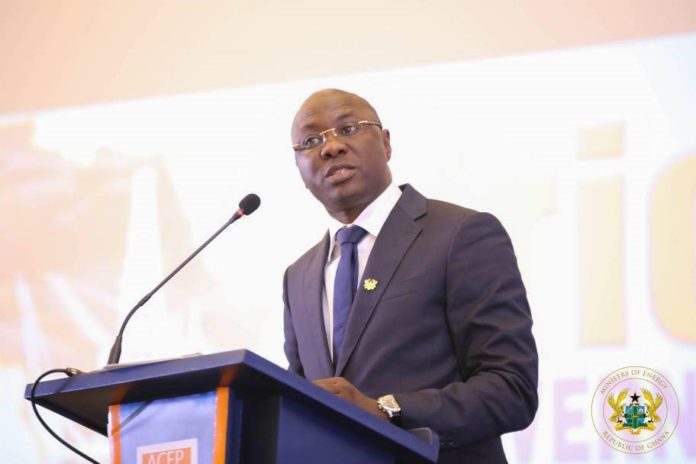Special topics
 Ghana is currently drafting a comprehensive Gas Bill that is expected to consolidate gas sector regulations and harmonise the legal regime with the emerging global regulatory landscape, the Deputy Minister of Energy, Mr Amin Adam has said.
Ghana is currently drafting a comprehensive Gas Bill that is expected to consolidate gas sector regulations and harmonise the legal regime with the emerging global regulatory landscape, the Deputy Minister of Energy, Mr Amin Adam has said.
The Bill, he said, is expected to be finalized and passed within a year, subject to the Parliamentary timetable, and will consolidate the existing laws and regulations in the gas sector and also address issues that are not captured in the existing legislation.
Speaking at the 5th Ghana Gas Forum in Accra on Tuesday, Mr Adam said the Gas Bill would address issues such as pricing of gas as well as infrastructure standards and approvals needed to ensure the safety of communities within which these gas companies operate.
He noted that the Ministry had also identified role conflicts among institutions and agencies within the gas sector regulation space, including the National Petroleum Authority (NPA), the Energy Commission, the Petroleum Commission and the Public Utilities Regulatory Commission (PURC) all operating in the space.
“I do not think any investor is going to be incentivised by these bureaucracies and over-regulation of the gas sector to put their money in the country,” he said, adding that, the Bill would clarify the roles of these institutions and agencies.
Ghana, according to the Deputy Minister, is also expected to see significant growth in its gas sector with the addition of the Offshore Cape Three Points (OCTP) gas to that from the Jubilee and TEN fields.
He said government, following the successful completion of the OCTP and flow of first gas in July 2018, had approved an amendment to the Plan of Development for the integrated OCTP oil and Gas Project.
The amendment is expected to pave the way for the partners in the OCTP to continue their evaluation of the Campanian reservoirs in order to submit, in the coming weeks, options on how to develop and produce the Campanian reservoirs as part of the overall OCTP Integrated Oil and Gas project.
“This will also ensure that an incremental upstream value of $2.4 billion in cash flow is created to be shared among the parties. This enhances the state’s (including the GNPC) net expected benefits on a present value basis,” he said.